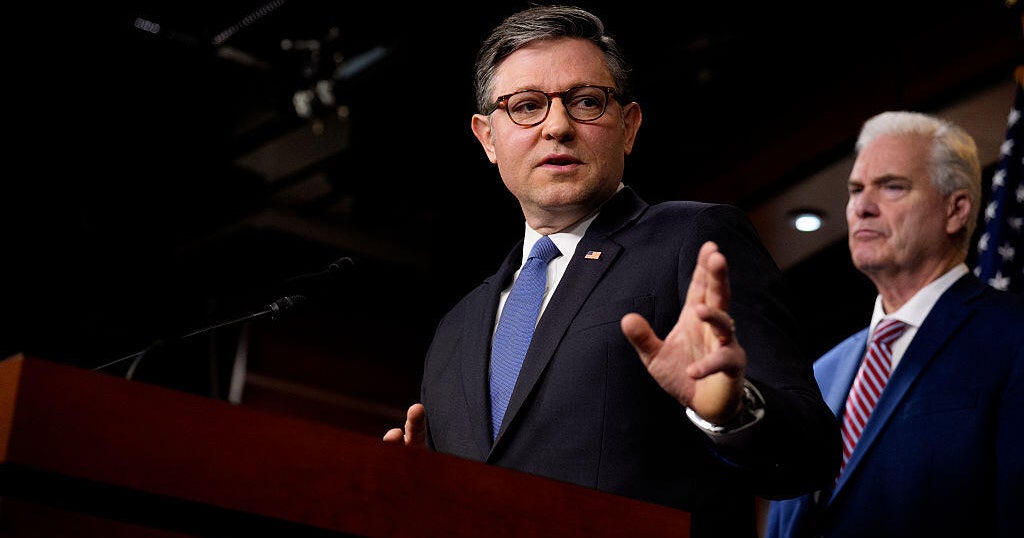Senators announce bipartisan climate caucus: "We look a bit like Neanderthals"
With most Americans now viewing climate change as a major threat, a group of senators announced the first bipartisan climate caucus to address the crisis. But the senators are short on specifics and seem to be taking small steps toward action, CBS News chief congressional correspondent Nancy Cordes reports.
Utah Senator Mitt Romney is one of four Republicans, three Democrats and one Independent who just joined the caucus. "We look a bit like Neanderthals," he said. "It's real. We've got to take action."
The caucus is the brainchild of Delaware Democrat Chris Coons and Indiana Republican Mike Braun. "My expectation is that we will start by listening," Coons said.
"I've got four kids," Braun said. "I took a poll among them, 'What do you think about this idea?' They love it."
It's a departure from the climate science skepticism the GOP has embraced in recent years. "There are still some Republican senators who think that cold winter weather is a sign that the climate isn't changing," Cordes said to the senators, referring to a common but mistaken assumption.
"Science is more and more clear, and I think people will either be convinced or not as time goes on," Romney said.
"I think many probably just were not willing to say it," said Braun. "To me, it's chemistry and physics, and I'm not going to deny that."
Democratic Senator Jeanne Shaheen can already see the impacts of climate change in her home state of New Hampshire. "Our ski industry is affected, our snowmobiling, our maple-surgaring industry. So many things that people can see," she said.
Coons also said he has seen changes in his state. "It's striking, in Delaware, just how much it's impacting everything, from sports fishing, commercial fishing," he said.
The caucus' first move will be a meeting with CEOs, some of whom are pushing for a carbon tax. But the group will not commit to anything yet.
"If we go there right away, I think we'll probably be doing the whole thing a disservice," Braun said.
"Do you have to cap, or at the very least discourage emissions, in order to make a difference?" Cordes asked.
"Oh, I'm not going to say any 'have to' with regards to climate. I think all the ideas will be on the table," Romney said.
Maine Senator Angus King said strength in numbers will help. "My philosophy is, let's take small steps, find some things we can succeed on," he said.
Scientists insist there's an urgency to act now, with millions at risk from rising temperatures and sea levels. And with the crisis threatening to cut the U.S. economy up to 10% by century's end, these senators hope Congress can catch up.
"I do believe that old saying is true, which is, when they feel the heat, they'll see the light," Romney said. "People who might otherwise be more inclined to slow things down are going to say, 'We've got to respond.'"
The group wants to introduce legislation by next year, but they have a challenge in winning over the Trump White House, which just began the process of withdrawing from the Paris Climate Accords this week and has rolled back dozens of environmental rules in the past three years.



